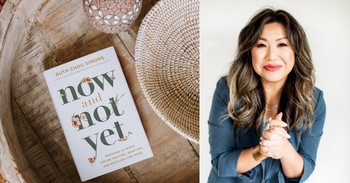Imagine your heart as a garden. As the plants grow, enriched by sun and rain, other things begin to grow as well. Tiny seeds, once dormant, have begun to sprout. Now imagine that the gardener comes along and is surprised by what she sees. The garden she once envisioned has been replaced by one that includes several strange plants, already deeply rooted.
Disheartened, she could simply throw up her hands and walk away, leaving the garden to fend for itself. Or, disliking the invaders, she could try tearing them out, risking damage to the other plants. Or she could approach the situation more calmly, deciding to become familiar with each new plant so she can tend the garden more effectively.
In the garden of your heart, emotions like joy, happiness, awe, and compassion spring up. But other emotions grow there as well—anger, shame, fear, disappointment, jealousy. Like the gardener who is surprised by what’s growing in her garden, we can be taken off guard by our emotional reactions. Disliking what we see, some of us respond like the disheartened gardener, thinking nothing can be done about our most deeply rooted feelings. So we let them run riot, allowing them to overrun the rest of the garden. Others of us are like the gardener who is so distressed by what she discovers that she destroys the garden in her haste to rip out the unwanted plants. We do that when we treat ourselves harshly, with self-condemnation, trying to suppress or destroy feelings we would rather not have.
Like gardens, our hearts won’t flourish under harsh or neglectful treatment. Far better to treat ourselves with kindness and compassion as we learn to handle feelings we’d rather not have.
The next time you feel angry, disappointed, hurt, anxious, or ashamed, don’t rush to bury the feeling and don’t scold yourself for having it. Allow yourself instead to experience the feeling and think about what caused it. Remember that emotions are neither good nor bad. What matters is how you respond to them. Taking a more accepting approach to unpleasant emotions will keep them from controlling you, enabling you to experience greater peace and emotional healing as you begin to understand yourself better.









